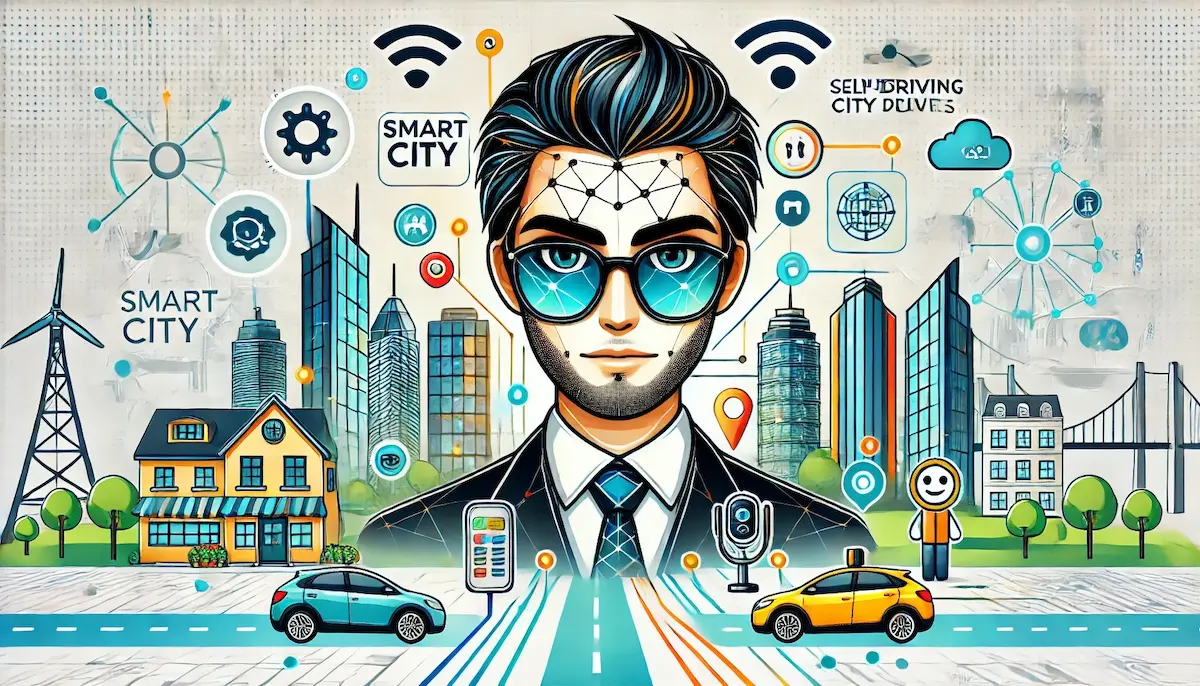In an age where technology is seamlessly integrating into our daily lives, the concept of smart cities is becoming increasingly relevant. Smart cities leverage cutting-edge technologies to enhance urban living, making cities more efficient, sustainable, and livable. Let’s explore what smart cities are, how they function, and the benefits they bring to urban environments.
What is a Smart City?
A smart city uses information and communication technologies (ICT) to improve the quality of life for its citizens, optimize the efficiency of city operations and services, and promote economic growth. This involves the deployment of sensors, data analytics, and the Internet of Things (IoT) to gather and analyze data in real-time, helping city officials and residents make informed decisions.
Key Features of Smart Cities
IoT and Sensor Networks
At the core of smart cities are IoT devices and sensors. These devices collect data on various aspects of urban life, such as traffic flow, air quality, energy usage, and waste management. This data is then used to monitor and manage city services more effectively.
Data Analytics
The vast amount of data collected by IoT devices is analyzed to gain insights and drive decision-making. Advanced data analytics helps city officials understand trends, identify problems, and implement solutions quickly and efficiently.
Connectivity
Smart cities rely on robust and widespread connectivity to ensure that data can be transmitted and accessed in real-time. This includes the use of high-speed internet, wireless networks, and other communication technologies to keep the city connected.
Sustainable Practices
Sustainability is a key goal for smart cities. By optimizing resource use and reducing waste, smart cities aim to minimize their environmental impact. This includes energy-efficient buildings, renewable energy sources, and smart waste management systems.
Benefits of Smart Cities
Improved Quality of Life
Smart cities enhance the quality of life by providing better services and amenities. From smart healthcare systems that offer real-time monitoring and telemedicine to smart transportation solutions that reduce congestion and improve mobility, residents enjoy a more convenient and comfortable living environment.
Efficient Resource Management
Smart cities use technology to manage resources more efficiently. Smart grids optimize energy distribution, reducing wastage and lowering costs. Similarly, smart water management systems monitor usage and detect leaks, ensuring a sustainable water supply.
Enhanced Public Safety
Public safety is a top priority in smart cities. Surveillance cameras, smart streetlights, and emergency response systems are integrated to improve security and reduce crime rates. Real-time data allows for quicker responses to emergencies and better disaster management.
Economic Growth
By fostering innovation and attracting businesses, smart cities can drive economic growth. The use of advanced technologies creates new job opportunities and stimulates the development of new industries, contributing to the overall economic prosperity of the city.
Environmental Sustainability
Smart cities prioritize environmental sustainability through the use of green technologies and practices. Smart grids, renewable energy sources, and efficient waste management systems help reduce the city’s carbon footprint and promote a healthier environment.
Examples of Smart City Initiatives
Barcelona, Spain
Barcelona has implemented a range of smart city initiatives, including smart street lighting, a sensor-based water management system, and a smart transportation network. These efforts have improved energy efficiency, reduced water wastage, and enhanced public transport services.
Singapore
Singapore is renowned for its smart city projects, such as the Smart Nation initiative. This includes smart housing, intelligent transportation systems, and digital healthcare services. The city-state uses data analytics and IoT to improve urban living and create a sustainable environment.
Copenhagen, Denmark
Copenhagen is focused on becoming carbon-neutral by 2025. The city has deployed smart heating systems, bike-sharing programs, and extensive sensor networks to monitor air quality and traffic. These initiatives support Copenhagen’s commitment to sustainability and improved urban life.
Smart cities represent the future of urban living, offering innovative solutions to the challenges of modern city life. By harnessing technology, data, and connectivity, smart cities can create more efficient, sustainable, and livable environments for their residents.
Blockfine thanks you for reading and hopes you found this article helpful.
